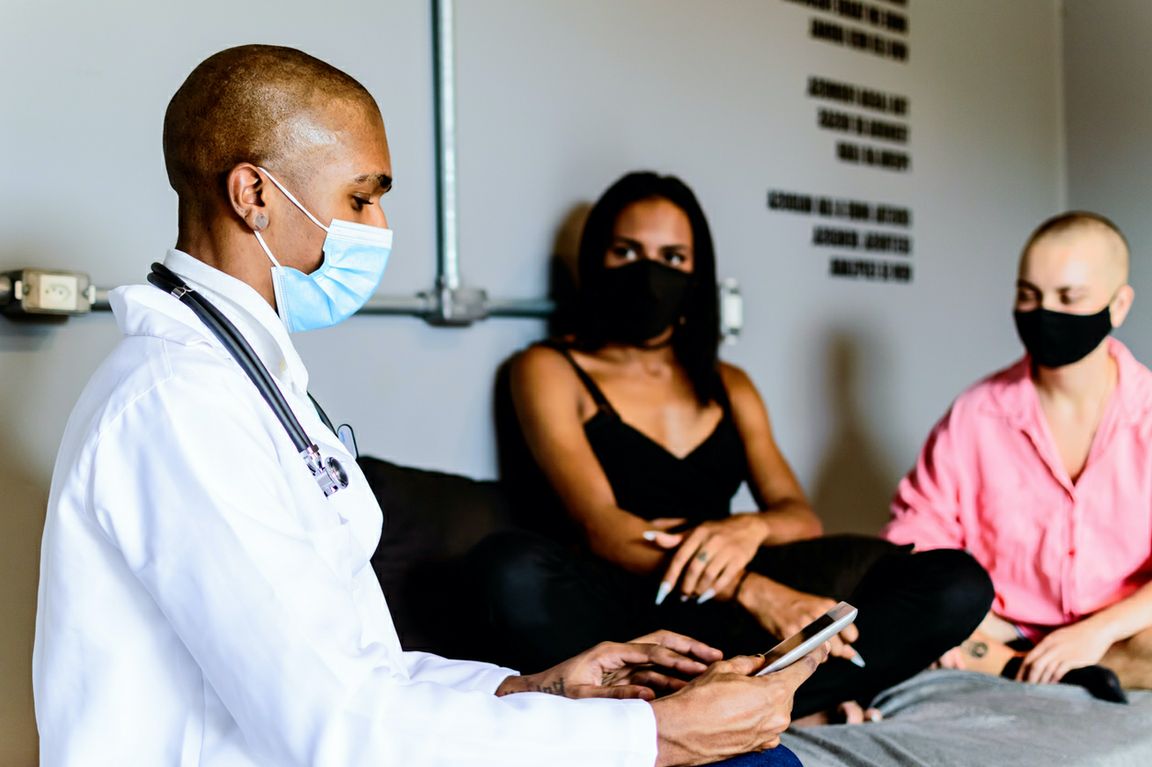UCLA study spotlights gaps in health care access among California's LGBT community | UCLA – UCLA Newsroom

Lesbian, gay, bisexual and transgender adults in California face significant barriers in accessing health care despite having similar or better rates of health insurance coverage than heterosexual or cisgender adults, a new UCLA report shows.
These barriers include a lack of timely access to needed care, not having a usual source of care, having trouble finding providers and experiencing unfair treatment, according to researchers from UCLA’s Center for Health Policy Research and Williams Institute who conducted the study.
Using data from the health policy center’s California Health Interview Survey from 2015 to 2020, the researchers tracked health care access and insurance coverage by sexual orientation and gender identity. They found that bisexual men and women were the most likely of all groups to report not having a usual source of health care (27% and 24%, respectively) and that rates of delaying or not getting needed medical care were considerably higher among bisexual women (33%) and lesbian women (23%) than straight women (16%).
The study also found that transgender adults experienced greater barriers to care than cisgender adults (those whose gender identity matches the sex they were assigned at birth) in a number of areas. Rates of delaying or not getting needed medical care, for example, were more than twice as high among transgender adults (33%) as cisgender adults (14%).
“Our study points out several of the health care access barriers the LGBT community in California faces, including greater difficulty finding providers who will see them and having to delay necessary health care,” said the study’s lead author, Susan Babey, a senior research scientist at the Center for Health Policy Research. “These findings emphasize the importance of looking more closely at differences within LGBT populations so that actions may be taken to close gaps in health care access and improve health outcomes for sexual and gender minorities.”
► The researchers will share their findings at a webinar today, Feb. 28, at noon PST.
Other key findings from the report:
Gay men (57%) and lesbian women (54%) were more likely to have employer-sponsored insurance than heterosexual men (48%) or women (44%).
Transgender adults (37%) were more likely to have Medi-Cal or other public insurance than cisgender adults (21%).
Bisexual women (20%) were twice as likely as straight women (11%) to report having trouble finding a medical specialist.
Transgender adults were more likely than cisgender adults to report not having a preventive care visit in the past year (39% vs. 28%) and to have trouble finding a specialist (29% vs. 11%).
Bisexual men (22%) and gay men (18%) had higher rates than straight men (12%) of delaying or not getting needed medical care.
Among transgender adults, transportation problems and their insurance not being accepted or not covering the care were cited as the main reasons for delaying or not getting needed care, the researchers noted.
Members of the LGBT community were also more likely to experience unfair treatment when getting medical care, with higher rates of lesbian women (44%), bisexual women (45%) and gay men (32%) reporting such experiences than straight women (32%) and men (23%). Previous negative experiences or discrimination may add to some of the barriers reported by LGBT adults, the study authors said.
“The findings show that LGBT Californians remain in need of clinical and structural interventions to improve access to health care. We also need more data to assess the different needs of the various communities within the LGBT population,” said study co-author Jody Herman, a senior scholar of public policy at the Williams Institute, which is based at UCLA School of Law. “The report also provides further evidence that barriers remain to receiving gender-affirming care, and continued advocacy and support is needed to increase access.”







